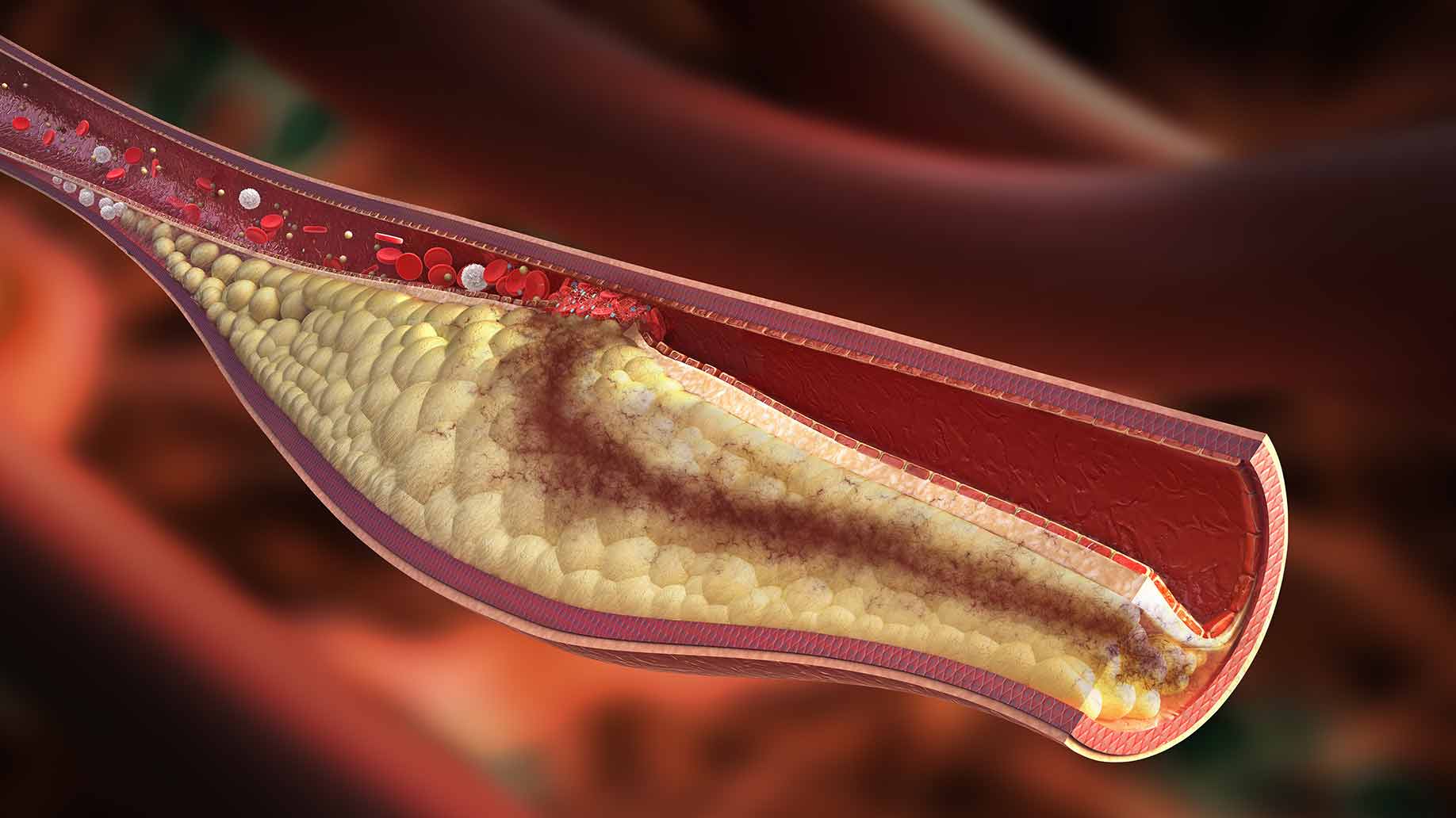Vitamin C or ascorbic acid is a water-soluble vitamin required for growth and repair of tissues, wound healing and maintenance of gums, bones and teeth.
It is also a powerful antioxidant which helps to prevent cell damage caused by unstable oxygen molecules known as free radicals. Oxidative damage contributes to a variety of diseases including cancer, heart disease and dementia.
A report published by the Centers for Disease Control (CDC) found that, while most of the US population had sufficient levels of vitamin C, 24% were at risk for vitamin C inadequacy and 8% were at risk for deficiency.
Even if you already get the recommended 75-90 mg of vitamin C from your daily diet, higher amounts might help to protect you against chronic illnesses.
Best Food Sources of Vitamin C
Most people associate vitamin C with oranges and orange juice. While oranges are a good source, with about 70 mg per medium fruit, they are certainly not the best.
Orange juice is not a particularly good way to up your daily intake. A 12-ounce glass of unsweetened juice contains around 9 teaspoons of sugar, about the same as a 12 ounce can of soda.
The following fruits and vegetables are all better sources of vitamin C than an orange and provide 100% of the Recommended Dietary Allowance (RDA) for vitamin C in a single serving:
- Guava
- Kiwifruit
- Papaya
- Red bell pepper
- Green bell pepper
- Black currents (1 cup)
- Strawberries (1 cup)
- Fresh pineapple (1 cup)
- Broccoli (1 cup)
- Kale (1 cup)
9 Scientifically Backed Health Benefits of Vitamin C
1. Beats the Common Cold

The common cold is caused by respiratory viruses and dozens of animal studies have shown that vitamin C reduces the incidence and severity of viral infections.
The practice of taking vitamin C supplements to ward off colds dates back to 1970 when Nobel Prize winner Linus Pauling wrote a popular book on the subject.
Since then, numerous studies of vitamin C and cold prevention have been carried out. A Cochrane Review of 31 studies concluded that regular vitamin C supplementation had a consistent effect in reducing the duration of common cold symptoms.
A double-blind trial published in the Canadian Medical Association Journal tested whether vitamin C substantially reduces the frequency and duration of colds. Researchers recruited 818 volunteers and gave them identical bottles of 500 tablets. Half of the bottles contained 250 mg vitamin C and half contained an orange-flavored placebo. Participants were instructed to take four tablets per day, increasing to 16 tablets per day for the first 3 days of any illness. Only those who continued to take tablets for at least 2 months were included in the final results.
Subjects were provided with record sheets and instructed to note each day whether they were sick or well and the total number of tablets taken. One each day of illness, they filled in a check-list of symptoms and severity.
Participants who took vitamin C were significantly more likely to remain free of illness throughout the study period. The subjects receiving the vitamin also experienced approximately 30% fewer days confined to the house or off of work than those receiving the placebo.
Strenuous physical exercise also leads to an increased risk of colds and flu. A study published in the American Journal of Clinical Nutrition tested whether vitamin C would reduce upper-respiratory-tract infections in ultramarathon runners. Researchers recruited 92 volunteers who were enrolled to run a 90-km marathon and 92 age-matched, non-runner controls. Half of the runners and half of the non-runners took 600 mg of vitamin C daily for 21 days before the race. The rest took identical looking and tasting placebo tablets.
Symptoms including runny nose, sneezing, sore throat, cough and fever were monitored for 14 days after the race. Runners in the placebo group were twice as likely to report cold symptoms compared to runners who had taken vitamin C before the race. Among the non-runners, the duration and severity of symptoms in the vitamin C-supplemented group was also significantly less than in the placebo group.
A systematic review published in Military Medicine investigated whether vitamin C supplementation affects respiratory infections in military personnel. The researchers identified 11 vitamin C trials with military recruits or subjects living under comparable conditions.
Five small controlled trials, in which the participants were under heavy exertion, found a 45-91% reduction in common cold incidence in the vitamin C group, compared to the placebo group. A further 3 trials found an 80-100% reduction in the incidence of pneumonia in the vitamin C group.
Recommended:
2. Increases Mood and Libido

A prospective study involving 1,007 elderly participants found that low blood levels of vitamin C was a risk factor for depression.
Research has shown that vitamin C is essential for the synthesis of norepinephrine, a hormone and neurotransmitter that helps to regulate mood and improve energy and alertness.
Vitamin C also stimulates secretion of oxytocin, the ‘love hormone’ which regulates social interaction, pair bonding and sexual reproduction. In addition to its effect on hormones, the antioxidant properties of vitamin C may help to ward off depression and anxiety by reducing oxidative stress in the brain.
An Iranian clinical trial tested the efficacy of vitamins C and E on anxiety in patients with type 2 diabetes. A total of 45 patients were randomly divided in 3 groups. They received either: 400 IU of vitamin E, 1000 mg of vitamin C or a placebo daily for 6 weeks. Before and after treatment, the participants were assessed with a 21-item depression, anxiety and stress questionnaire (DASS-21).
The results showed a significant decrease in anxiety scores in the vitamin C group compared to other groups. While there was no statistically significant change in stress scores for the vitamin C group, stress levels significantly increased in the placebo group.
A clinical trial published in Nutrition investigated whether vitamin C or D could improve the mood state of acutely hospitalized patients. Patients were randomly assigned to take either 500 mg of vitamin C twice daily or 1,000 IU of vitamin D twice daily.
Patients’ mood was assessed on the Profile of Mood States (POMS) before and after vitamin therapy. The POMS is a validated questionnaire that measures depression, tension, anger, fatigue, confusion and vigor. While vitamin D had no significant effect on mood, vitamin C was associated with a 34% reduction in mood disturbance.
A German study published in Biological Psychiatry examined the effect of vitamin C on sexual behavior and mood. A total of 81 healthy young adults were randomized to receive either 3,000 mg of sustained-release vitamin C daily or a placebo.
Before and after the trial, participants completed a psychometric test called the Beck Depression Inventory (BDI). Subjects with partners kept diaries of sexual activity.
After 14 days, the vitamin C group, but not the placebo group, experienced a decrease in BDI scores. The vitamin C group also reported more sexual intercourse. The effect was most prominent in women and participants not living with their sexual partner.
Recommended:
3. Decreases High Blood Pressure

Vitamin C could help to lower high blood pressure in several ways.
Laboratory tests have shown that ascorbic acid promotes the synthesis of nitric oxide and improves nitric oxide bioactivity. Nitric oxide widens blood vessels and helps to maintain their elasticity. Vitamin C also improves the function of the endothelium, the inner lining of blood vessels and arteries. In addition, the antioxidant properties of vitamin C can help to combat oxidative stress, which is thought to contribute to high blood pressure.
In stressful situations, the body releases the hormone cortisol which narrows blood vessels and causes a temporary rise in blood pressure. A randomized controlled trial published in Psychopharmacology investigated the effect of vitamin C on stress, cortisol and blood pressure. A total of 120 healthy young adults were divided into 2 groups. The treatment group received a high (3,000 mg per day) dose of sustained-release vitamin C. The control group received a placebo.
After 14 days, the participants underwent the Trier Social Stress Test (TSST), which was designed to induce a reliable stress response. The test involves preparing and giving a speech and preforming mental arithmetic out loud in front of a panel of observers while being filmed. Blood pressure readings, saliva samples and subjective stress ratings were taken before, during and after the TSST.
Compared to the placebo group, the vitamin C group had lower systolic blood pressure, diastolic blood pressure and subjective stress responses to the TSST. Their raised cortisol levels also took less time to return to normal.
A trial published in Clinical Science tested the hypothesis that the antioxidant properties of vitamins C and E are associated with a decrease in blood pressure. Researchers recruited 110 men aged 35-60 who had high blood pressure with none of the usual risk factors such as obesity, diabetes or smoking. Participants were randomly assigned to receive either a combination of vitamin C and E or a placebo daily.
Before and after the 8-week trial, participants’ blood pressure was monitored over 24 hours. Their blood was tested for markers of oxidative stress, antioxidant enzymes and vitamin C and E levels. Patients who took the vitamins had significantly lower systolic and diastolic blood pressure and higher blood antioxidant capacity compared with both the placebo-treated patients and their own measurements prior to treatment.
Researchers concluded that oxidative stress played a role in the development of hypertension with no identifiable cause and that antioxidant vitamins could be used as a therapy for hypertension.
A meta-analysis published in the American Journal of Clinical Nutrition reviewed 29 randomized controlled trials to determine the effects of vitamin C supplementation on blood pressure. The trials were conducted between 1982-2010 and included 1,407 participants aged 22-74. The average dose given was 500 mg per day for 8 weeks. The pooled results showed that vitamin C supplementation significantly reduced both systolic and diastolic blood pressure.
Recommended:
4. Fights Against Coronary Artery Disease (CAD)

Coronary artery disease (CAD) is associated with stiffening and narrowing of arteries and inappropriate platelet adhesion. The normal function of platelets in the blood is to stop bleeding by clumping and clotting blood vessel injuries.
In CAD, the platelets form a blood clot (thrombosis) within the artery, obstructing the flow of blood to the heart. Nitric oxide has a variety of protective effects on blood vessels and platelets. Vitamin C increases the bioavailability of nitric oxide through its antioxidant activity.
A clinical study published in Circulation examined the effects of vitamin C treatment on dilation of the brachial artery in patients with CAD. A total of 46 patients visited a clinic where their vital signs were recorded and blood and urine samples were taken. Ultrasound was used to measure how much the brachial artery widened in response to an increase in blood flow.
The subjects were then randomized to receive either 2 grams of vitamin C or matched placebo tablets. Two hours later, their brachial artery dilation was remeasured. Subjects continued to take either 500 mg per day of vitamin C or placebo tablets for the next month, then returned to the clinic for repeat measurements.
After a single dose of vitamin C, artery dilation improved from approximately 6% to 10%. The effect was sustained after a month of vitamin C treatment. In the placebo group, measurements of dilation remained unchanged in the short and long term.
A small study published in the Journal of Cardiovascular Pharmacology examined whether vitamin C could reduce arterial stiffness and platelet aggregation. Researchers recruited 8 healthy male volunteers aged 20-42 and subjected them to several clinical tests. A non-invasive technique called pulse-wave analysis recorded pressure waveforms from the radial artery in the non-dominant arm to measure arterial stiffness. Blood was taken and analyzed for platelet aggregation.
Subjects then received either 2 grams of vitamin C orally or a matching placebo. All measurements were repeated after 6 hours. The vitamin C group had a significant reduction in both arterial stiffness and platelet aggregation. The placebo group showed no change in these parameters.
A study published in the Journal of Applied Nutrition tested the effect of a nutritional supplement program on the progression of coronary artery calcification in 55 CAD patients aged 44-67. The patients were given a high (2,700 mg) daily dose of vitamin C along with other vitamins and minerals. They were instructed not to change their diet or lifestyle other than taking the nutritional supplements.
At the start of the study and after 6 and 12 months, the extent of coronary artery calcification was measured non-invasively with a computed tomography (CT) scanner. A Coronary Artery Scanning (CAS) score was calculated based on the area calcified and the density of calcium deposits.
The average monthly changes in the total CAS score for all 55 patients had decreased by 11% after one year on the nutritional supplement program. For a subset of patients with early coronary artery disease, the average monthly growth of the CAS score decreased by as much as 65%.
In one 51-year-old patient with early, asymptomatic, coronary artery disease, the initial scan revealed small calcifications in the left and right coronary arteries. When CT scans were taken after one year on the nutritional supplement program, coronary calcifications were not found.
Recommended:
5. Protects Against Alzheimer’s Disease and Dementia

Alzheimer’s disease is characterized by the accumulation of amyloid-beta proteins in the brain. Amyloid-beta can induce oxidative stress in neurons and deplete the protective reserves of antioxidants in brain cells.
Studies have shown that antioxidants are neuroprotective and dietary antioxidants such as vitamin C may help patients suffering from Alzheimer’s disease.
A Dutch cohort study published in JAMA investigated the relationship between dietary intake of antioxidants and risk of Alzheimer’s disease. A total of 5,395 participants aged at least 55 and free of dementia were followed up for 6 years.
At the start of the study, participants completed a checklist of foods and drinks they had consumed at least twice a month during the preceding year and were interviewed by a dietitian. The data was fed into a computer program that calculated intake of vitamin A, flavonoids, vitamin C and vitamin E. Cognitive function was assessed with the Mini-Mental State Examination (MMSE), a standard diagnostic tool for dementia.
Over the course of the study, 197 participants developed dementia, of whom 146 had Alzheimer’s disease. After adjusting for factors such as age, initial MMSE score, smoking, alcohol intake and BMI, high dietary intake of vitamin C and vitamin E were both associated with an 18% lower risk of Alzheimer’s disease. The protective effect was strongest among smokers, were vitamin C reduced Alzheimer’s risk by 35% and vitamin E reduced it by 42%.
A prospective study published in the Archives of Neurology examined the relationship between antioxidant supplement use and risk of Alzheimer’s disease. Researchers analyzed data from 4,740 elderly participants in a population study held in Cache County, Utah.
At the start of the study, residents were tested to determine their cognitive status. They were also interviewed about suspected risk factors for dementia. The interview included a question about vitamin supplements taken during the preceding 2 weeks. Approximately 17% of participants reported taking vitamin E or vitamin C supplements.
After 3 years, the participants were reassessed for cognitive status. A total of 304 cases of Alzheimer’s disease were identified over the course of the study. After controlling for factors such as age, sex and general health, researchers found a trend toward reduced risk of Alzheimer’s disease in those taking a combination of vitamin E and C supplements.
There was no notable significant reduction in Alzheimer’s risk with vitamin E or vitamin C alone or with multivitamins, which contain far less E and C than individual supplement capsules.
Recommended:
6. Fights Type 2 Diabetes

Obesity is associated with high levels of the proinflammatory protein TNF-alpha, which plays a direct role in insulin resistance and diabetes.
Vitamin C decreases TNF-alpha, causing an increase in the uptake of glucose in response to insulin. Most type 2 diabetics have low levels of vitamin C and supplementation has been shown to lower fasting blood sugar.
A school-based study published in Diabetic Medicine examined whether low circulating vitamin C concentrations were associated with type 2 diabetes risk in children. A multi-ethnic group of 2,025 children aged 9-10 provided researchers with blood samples after an overnight fast and were interviewed by a nutritionist about foods eaten on the previous day.
The blood samples were tested for vitamin C concentrations, circulating insulin, insulin resistance, cholesterol levels and other type 2 diabetes risk markers. Analysis showed that higher concentrations of vitamin C were consistently associated with lower insulin resistance, lower blood sugar and higher HDL ‘good’ cholesterol.
A pilot study published in Nutrients investigated the correlation between blood concentrations of vitamin C and metabolic health. Study participants included 35 individuals with normal blood sugar levels, 25 with prediabetes and 29 with type 2 diabetes. Participants completed 4-day food diaries and lifestyle questionnaires. Blood samples were taken following a 12-hour fast and analyzed for vitamin C levels, glucose levels and inflammation markers.
Vitamin C levels were significantly lower in the individuals with type 2 diabetes compared to those with normal blood sugar. Vitamin C levels were inadequate in 58% of participants with prediabetes and 52% of diabetics compared to 21% of the normal blood sugar group.
Excess body fat is associated with chronic low-grade inflammation which can lead to the development of metabolic syndrome and type 2 diabetes. A study published in Drug Design, Development and Therapy evaluated the effect of vitamin C on inflammatory markers in obese adults.
A total of 64 obese patients with high blood pressure and/or type 2 diabetes were randomized into a treatment group and a control group. The treatment group took 500 mg of vitamin C tablets twice a day. After 8 weeks, the vitamin C treatment achieved clinical significance for reducing markers of inflammation and fasting blood sugar levels.
A systematic review published in the Journal of Pharmacy and Pharmaceutical Sciences examined the influence of vitamin C supplementation on type 2 diabetes. Researchers analyzed pooled data from 5 randomized placebo-controlled trials and concluded that vitamin C significantly lowers fasting blood sugar in type 2 diabetics.
Recommended:
7. Cancer Prevention

According to a review article published in the American Journal of Clinical Nutrition, there is strong evidence that vitamin C or vitamin-C-rich foods protect against cancers of the esophagus, oral cavity, stomach, and pancreas.
There is also substantial evidence of a protective effect in cancers of the cervix, rectum, and breast. The antioxidant properties of vitamin C help to neutralize free radicals before they can damage DNA and initiate tumor growth.
A meta-analysis published in Scientific Reports investigated the association between vitamin C intake and the risk of pancreatic cancer. The researchers reviewed 4 cohort studies and 13 case-control studies involving 4827 pancreatic cancer cases. The pooled results showed that the highest vitamin C intake was associated with a 30% lower risk of pancreatic cancer compared to the lowest intake. The associations were significant in Caucasian, Asian and mixed populations.
A systematic review published in PLOS One examined the association between vitamin intake and gastric cancer. The researchers combined data from 47 studies including randomized placebo-controlled trials as well as prospective and observational studies. The pooled data showed a 23% reduced risk for gastric cancer in the highest vitamin intake group relative to the lowest vitamin intake group. When the researchers conducted a dose-response analysis on different types of vitamins they found that vitamin C intake of 100 mg per day was associated with a 26% reduced risk of gastric cancer.
A case-control study published in the International Journal of Cancer assessed the relation of diet to the risk of invasive cervical cancer. Researchers compared the diets of 189 Seattle women diagnosed with cervical carcinoma with those of 227 randomly selected women in the same area. The women were interviewed about their intake of 66 food items over the preceding year.
Analysis of the data showed that the more vitamin C the women consumed, the lower their risk for cervical cancer. Those with the highest intake of dietary vitamin C reduced their risk by 50% compared to those with the lowest intake.
Recommended:
8. Cancer Treatment

Research has shown that very high doses of vitamin C can kill cancer cells without harming normal tissue.
When vitamin C breaks down in the body, it generates hydrogen peroxide. Normal cells use an enzyme called catalase to remove hydrogen peroxide before it can cause damage. Cancer cells with lower amounts of catalase activity are susceptible to damage and death when exposed to the hydrogen peroxide generated by vitamin C.
In a clinical trial, 11 brain cancer patients who were undergoing radiation therapy and chemotherapy were given intravenous infusions of vitamin C to create blood concentrations up to 500 times higher than levels seen with oral supplements. The infusions were administered 3 times a week for 2 months, then twice a week for 7 months. The patients given high dose vitamin C therapy survived 4-6 months longer than the average survival time for patients undergoing conventional treatment. The researchers noted only minor side-effects including dry mouth and occasional high blood pressure.
A German cohort study published in In Vivo evaluated the safety and efficacy of intravenous vitamin C for women with breast cancer. All of the subjects received standard tumor therapy. Researchers compared data from 53 patients who were treated with intravenous vitamin C for at least 4 weeks with data from a control group of 72 similar patients who did not have vitamin treatment. Intravenous vitamin C significantly reduced the side effects of chemotherapy and radiotherapy such as nausea, fatigue and loss of appetite. The intensity score of symptoms was nearly twice as high in the control group compared to the study group.
Recommended:
9. Beautiful Skin and Hair

Collagen is a structural protein essential for firm, young-looking skin. Vitamin C plays a vital role in the formation of collagen. It also leads to the growth of shiny, healthy and beautiful hair.
In fact, research has shown that treating human skin with vitamin C stimulates collagen synthesis. The antioxidant properties of vitamin C also help to protect the skin from free-radical damage caused by exposure to UV radiation from the sun. While dietary vitamin C helps to protect and repair the skin, vitamin C can also be applied topically in the form of serums, creams and lotions.
A study published in the American Journal of Clinical Nutrition evaluated the associations between dietary nutrients and skin-aging appearance in 4,025 women aged 40-74. The participants were interviewed about all foods and beverages consumed over a 24-hour period and researchers estimated nutrient intake for each food and beverage reported. Dermatologists conducted clinical examinations of participants’ skin and rated 3 signs of aging: wrinkles, dryness and skin thinning.
Higher vitamin C intakes were associated with a lower likelihood of a wrinkled appearance and dryness caused by aging. These associations were independent of age, sunlight exposure and menopausal status. The only other nutrient associated with better skin-aging appearance was linoleic acid (found in vegetable oils).
A study published in Experimental Dermatology tested a cream containing 5% vitamin C on sun‐induced skin aging. Female volunteers with photoaged skin applied the vitamin C cream to one side of their lower neck and one arm. They applied the same cream, but without the vitamin C, to the opposite side and arm. The volunteers weren’t told which cream was active and which was the control.
After 6 months, clinical examination by a dermatologist and self‐assessment by the volunteers revealed a significant improvement on the vitamin C‐treated side. Skin biopsies examined under the microscope showed that vitamin C treatment significantly increased the density of skin, decreased deep furrows and promoted elastic tissue repair.
Male pattern baldness occurs when the dihydrotestosterone hormone activates the production of a protein called DKK-1 which inhibits the function of papilla cells. A Korean study investigated the effect of L-ascorbic acid 2-phosphate (Asc 2-P), a derivative of vitamin C, on dermal papilla cells taken from a balding scalp. Asc 2-P stopped the production of DKK-1.
In another study, the scientists found that Asc 2‐P led to an increase in the production of the growth factor IGF-1 in papilla cells. It promoted elongation of hair shafts in human hair follicles and induced hair growth in mice.
Recommended:
Final Word
The Recommended Dietary Allowance (RDA) for vitamin C is 90 mg per day for men and 75 mg per day for women. The Institute of Medicine estimates that the average dietary intake of vitamin C for American adults is 102 mg per day.
That means that, if you eat reasonable amounts of fruit and vegetables, you’ll get enough vitamin C to naturally obtain antioxidant protection.
However, if you’re concerned about any of the health conditions discussed above, you may choose to take supplements.
Research has shown that liposomal-encapsulated vitamin C supplements produce higher circulating concentrations of vitamin C in the body than standard oral supplements. The Tolerable Upper Intake Level (UL) of vitamin C for adults is set at 2 grams per day. Higher amounts can cause stomach upset and diarrhea.










